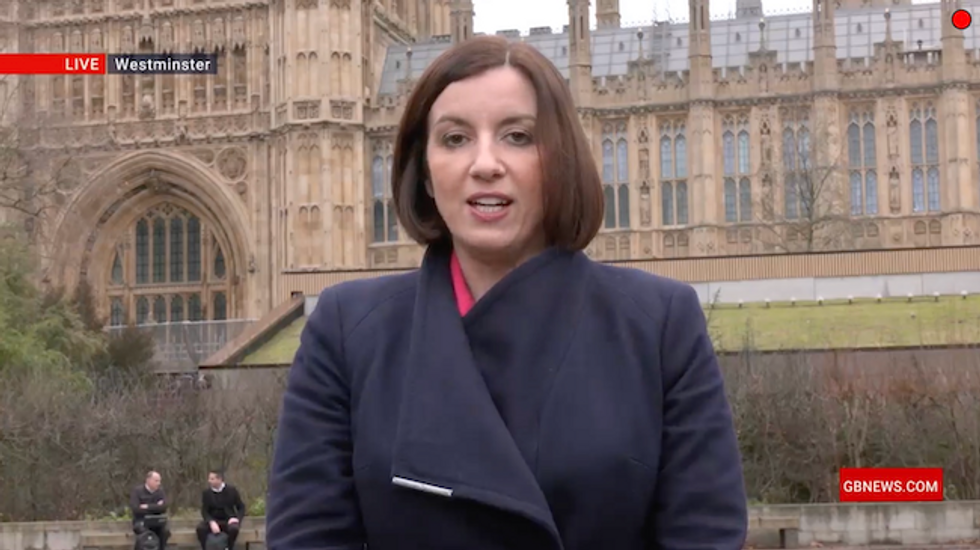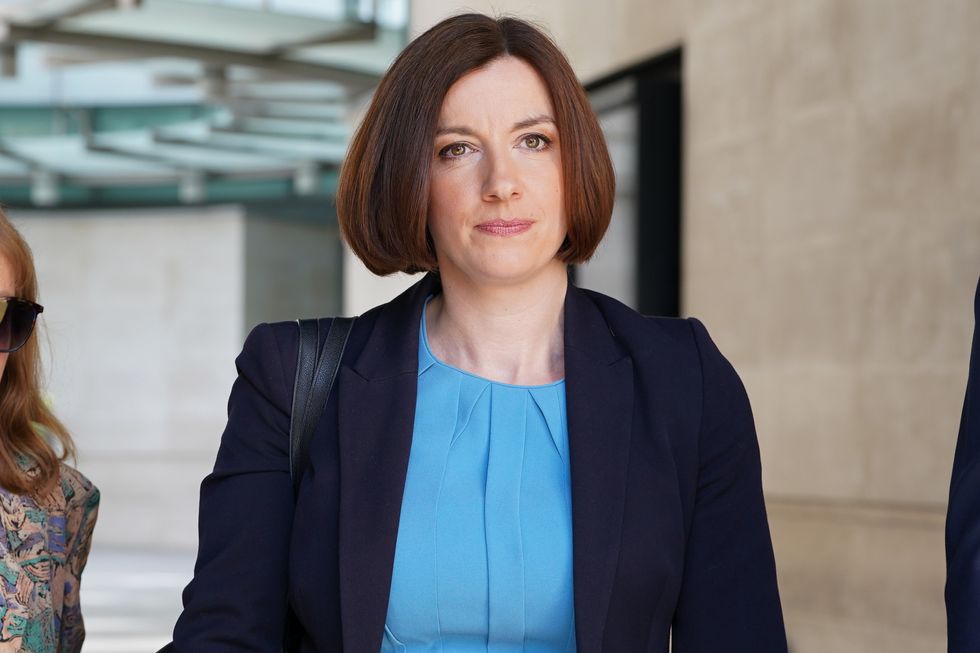Free Speech under threat
GB News
The Higher Education (Freedom of Speech) Act 2023 was introduced to counteract "cancel culture" in academic institutions.
Don't Miss
Most Read
Trending on GB News
Bridget Phillipson's attempt to revoke the Higher Education (Freedom of Speech) Act shortly after the General Election has been branded "Orwellian".
Phillipson received a briefing from Department for Education (DfE) officials in July on how to go about revoking the new laws promoting academic freedom.
The Education Secretary announced on July 26 that she was shelving this Act, which was just six days before it was scheduled to come into force on August 1.
Phillipson justified this move at the time by stating she wanted to "consider options, including its repeal".
However, court documents obtained by the Daily Telegraph reveal that she had sought advice weeks prior on how to scrap these free speech provisions.

Phillipson justified the move at the time by stating she wanted to 'consider options, including its repeal'.
GB NewsIn a briefing addressed to Phillipson on July 8, the Monday after Labour's landslide victory, DfE officials said: “We understand you do not wish to implement the main provisions of the Higher Education (Freedom of Speech) Act 2023.
“A decision is needed on whether to allow the commencement of the provisions of the Act that are due to come into force on Aug 1, or to pause.”
The DfE document informed Phillipson that failure to intervene over the Act would mean the legislation automatically going live at the start of August.
It said: “Therefore, immediate decisions are needed to revoke these regulations following which you can consider different options relating to repeal of the Act."
Phillipson's decision was based on concerns from some minorities, particularly Jewish groups, about the potential for the Act to enable harmful or offensive speech.
Phillipson herself has expressed concerns about the Act potentially "exposing students to harm and appalling hate speech on campuses".
Conversely, other groups with protected characteristics, like gender-critical feminists, supported the legislation, highlighting its importance in safeguarding free speech for minority viewpoints.
They argue that this Act was necessary to protect academics from "cancel culture".
Speaking to GB News, political commentator Kane Blackwell branded Phillipson's decision to mothball the free speech laws as "absolutely Orwellian".
The Free Speech Union has initiated legal action against her decision, arguing that it went beyond her ministerial powers. A judicial review is set for January 23 in the High Court to challenge the legality of pausing the legislation without parliamentary debate.
This diversity of opinion illustrates the complex balance between protecting free speech and preventing hate speech on university campuses.
LATEST MEMBERSHIP DEVELOPMENTS

Phillipson has expressed concerns about the Act potentially 'exposing students to harm and appalling hate speech on campuses'
PAWhat does the Higher Education (Freedom of Speech) Act 2023 entail?
The Higher Education (Freedom of Speech) Act 2023 involves several key provisions aimed at protecting freedom of speech within the legal framework of higher education institutions in England.
These include:
- Legal Duties: It imposes legal duties on universities and students' unions to take "reasonably practicable steps" to secure freedom of speech within the law for staff, members, students, and visiting speakers. This includes ensuring that premises are not denied to individuals or groups based on their views or beliefs.
- Statutory Tort: The Act introduces a new statutory tort, allowing individuals to seek compensation if they suffer losses due to an institution's failure to protect their freedom of speech.
- Free Speech Champion: An ombudsman role, known as the "Director for Freedom of Speech and Academic Freedom" or "free speech champion," is established to monitor compliance and handle complaints related to free speech issues. This role is part of the Office for Students (OfS)
- Complaints Scheme: A new complaints scheme operated by the OfS allows students, staff, and visiting speakers to challenge decisions or actions that they believe infringe upon their free speech rights.
- Promotion of Free Speech: The Act extends the duty to promote freedom of speech to students' unions, alongside universities, ensuring a broader commitment to this principle across higher education campuses.
- Academic Freedom: It specifically protects the academic freedom of staff to question received wisdom and put forward new, controversial, or unpopular ideas without fear of adverse employment consequences.
In response to a request for comment, a DfE spokesperson said: “We do not comment on live legal proceedings.”








